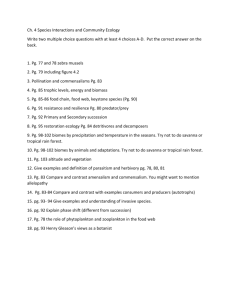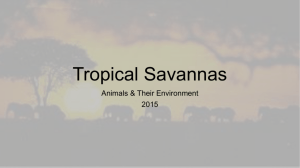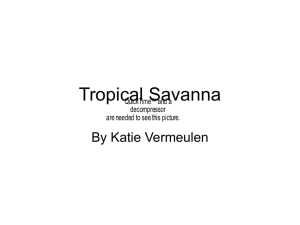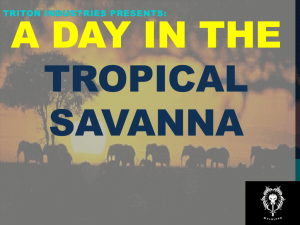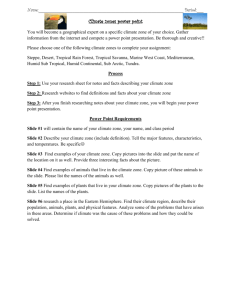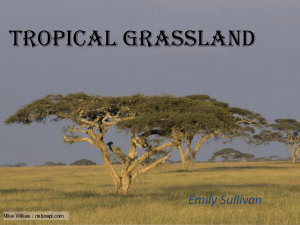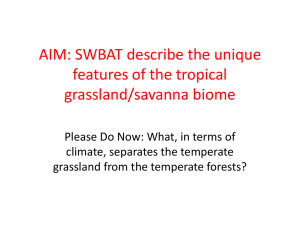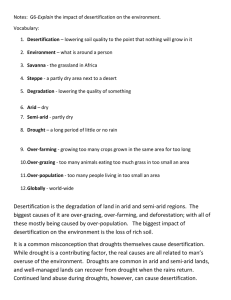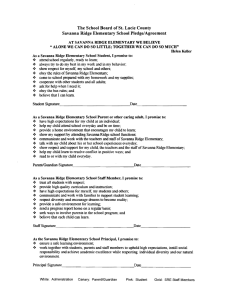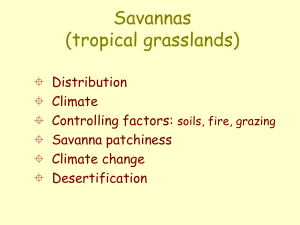Savanna - Tartu Veeriku Kool
advertisement
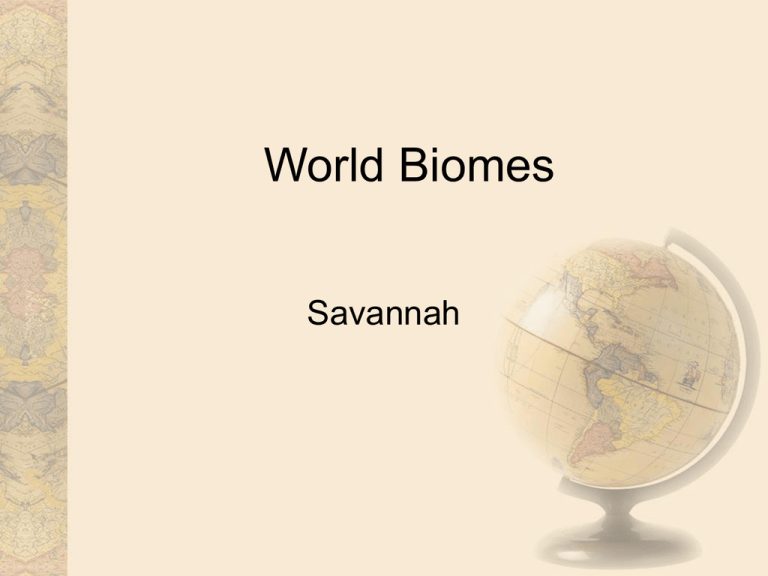
World Biomes Savannah Distribution of biome • A savanna is a rolling grassland scattered with shrubs and isolated trees, which can be found between a tropical rainforest and desert biome. Not enough rain falls on a savanna to support forests. Savannas are also known as tropical grasslands. They are found in a wide band on either side of the equator on the edges of tropical rainforests. Distribution Climate • A tropical wet and dry climate predominates in areas covered by savanna growth. Mean monthly temperatures are at or above 18° C and annual precipitation averages between 750 and 1300 mm. For at least five months of the year, during the dry season, less than 10 mm a month are received. The dry season is associated with the low sun period. Soil • Soils vary according to bedrock. In general, low fertility soils can be expected. Plants I • Plants of the savannas are highly specialized to grow in this environment of long periods of drought. They have long tap roots that can reach the deep water table, thick bark to resist annual fires, trunks that can store water, and leaves that drop of during the winter to conserve water. Plants II • The grasses have adaptations that discourage animals from grazing on them; some grasses are too sharp or bitter tasting for some animals, but not others, to eat. The side benefit of this is that every species of animal has something to eat. Different species will also eat different parts of the grass. Many grasses grow from the bottom up, so that the growth tissue doesn't get damaged by grazers. Many plants of the savannah also have storage organs like bulbs and corms for making it through the dry season. Baobab Elephant Grass Umbrella Thorn Acacia Candelabre tree Animals I • Most of the animals on the savanna have long legs or wings to be able to go on long migrations. Many burrow under ground to avoid the heat or raise their young. The savanna is a perfect place for birds of prey like hawks and buzzards. The wide, open plain provides them with a clear view of their prey, hot air updrafts keep them soaring, and there is the occasional tree to rest on or nest in. Animals don't sweat to lose body heat, so they lose it through panting or through large areas of exposed skin, or ears, like those of the elephant. Animals II • Different plant eaters provide a wide range of food for meat eaters, like lions, leopards, cheetahs, jackals and hyenas. Each species has its own preference, making it possible to live side by side and not be in competition for food. African Elephant Lion Zebra Hyena Emu Red kangaroo Black Mamba Nile Crocodile Termite mound Aardvark People I People II Grain sorghums are the staple food for millions of people in China, India, and Africa. It is the most drought tolerant grain crop. People III Millet is a crop of vital importance to millions of African families living in semi-arid regions of the continent. Millet is one of the world’s most resilient crops. In many areas where millet is the staple food, nothing else will grow. People IV • Desertification is the process which turns productive into non- productive desert as a result of poor land-management. Desertification occurs mainly in semi-arid areas (average annual rainfall less than 600 mm) bordering on deserts. • Overgrazing is the major cause of desertification worldwide.
